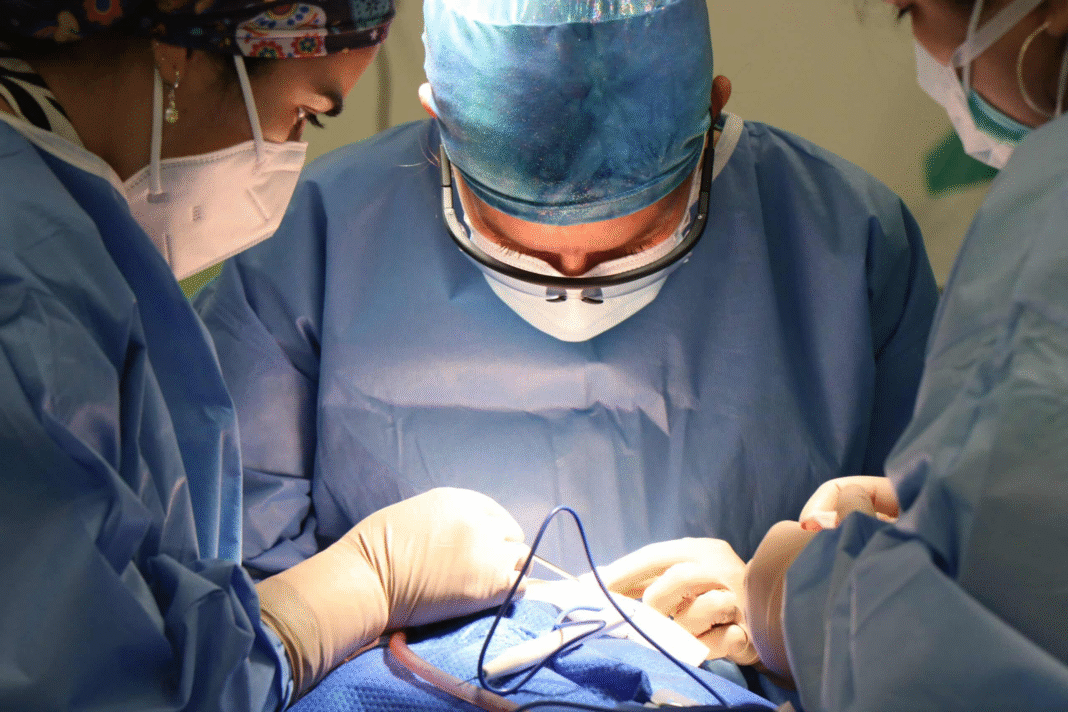When it comes to heart health, choosing the right specialist can make all the difference. Arrhythmia — a condition where your heart beats irregularly, too fast, or too slow — can be frightening. But with the right cardiologist by your side, managing it becomes far easier and safer. In this article, we’ll explore what arrhythmia is, how it’s managed, and how to find top-rated cardiologists who specialize in
arrhythmia treatment.
What Is Arrhythmia?
Arrhythmia refers to any abnormal rhythm of the heart. Your heartbeat is controlled by electrical signals, and when these signals go awry, your heart can beat irregularly. There are several types of arrhythmias, including:
- Atrial fibrillation (AFib): Rapid, irregular heartbeat
- Bradycardia: Slower than normal heartbeat
- Tachycardia: Faster than normal heartbeat
- Premature contractions: Extra or skipped beats
- Ventricular fibrillation: Dangerous and life-threatening irregular heartbeat
Some arrhythmias may be harmless, while others can lead to stroke, heart failure, or sudden cardiac arrest.
Why You Need a Cardiologist for Arrhythmia
Not all cardiologists specialize in treating arrhythmia. For complex cases, it’s best to see an electrophysiologist — a cardiologist with extra training in the heart’s electrical system. They can offer advanced diagnostics, treatments like ablation therapy, and help manage devices like pacemakers or defibrillators.
Top-Rated Cardiologists for Arrhythmia Management (Globally Recognized)
Here are some of the most respected names in the field, known for their expertise in arrhythmia management:
Dr. Andrea Natale – Texas Cardiac Arrhythmia Institute, USA
- Specialty: Electrophysiology, atrial fibrillation ablation
- Why he’s top-rated: Known worldwide for pioneering new catheter ablation techniques, Dr. Natale has treated thousands of patients with complex arrhythmias.
- Reputation: Patients travel globally for his care. He’s also a frequent speaker at international cardiac conferences.
Dr. Sanjiv Narayan – Stanford University, USA
- Specialty: Atrial fibrillation research and treatment
- Why he’s top-rated: Dr. Narayan developed the FIRM mapping system that helps pinpoint arrhythmia sources for precise ablation.
- Reputation: A leader in innovative arrhythmia research, with numerous published studies.
Dr. Josep Brugada – Hospital Clínic de Barcelona, Spain
- Specialty: Brugada Syndrome and sudden cardiac death prevention
- Why he’s top-rated: Co-discovered the Brugada Syndrome, a life-threatening arrhythmia condition. Offers expert diagnosis and care for rare rhythm disorders.
- Reputation: World-renowned in inherited heart rhythm disorders.
Dr. Hugh Calkins – Johns Hopkins Medicine, USA
- Specialty: Electrophysiology, catheter ablation, heart rhythm management
- Why he’s top-rated: He has written major guidelines used worldwide for arrhythmia care.
- Reputation: Trusted by both patients and physicians, especially in academic and clinical leadership.
Dr. Prash Sanders – Centre for Heart Rhythm Disorders, Australia
- Specialty: Atrial fibrillation, lifestyle and arrhythmia links
- Why he’s top-rated: His research shows how weight loss and fitness impact arrhythmia, offering holistic care.
- Reputation: Recognized globally for linking lifestyle factors with rhythm disorders.
Finding Top-Rated Arrhythmia Doctors Near You
If you’re not near these international centers, you can still find excellent arrhythmia specialists locally. Here’s how:
✅ Tips for Choosing the Right Cardiologist:
- Look for “Electrophysiologist” title: This means they specialize in heart rhythm disorders.
- Check hospital affiliations: Reputed hospitals often have top arrhythmia teams.
- Ask about experience: Especially in procedures like ablation or device implantation.
- Read patient reviews: Look for comments on communication, clarity, and post-treatment care.
- Use rating platforms: Websites like Healthgrades, Zocdoc, or hospital directories list top-rated specialists.
How Do Top Cardiologists Treat Arrhythmia?
The treatment depends on the type and severity of the arrhythmia. Here are some common approaches used by specialists:
- Lifestyle Changes
- Cutting back on caffeine and alcohol
- Managing stress
- Improving sleep and diet
- Cutting back on caffeine and alcohol
- Medications
- Antiarrhythmic drugs
- Beta-blockers or calcium channel blockers
- Anticoagulants (to prevent stroke)
- Antiarrhythmic drugs
- Procedures
- Cardioversion: Shocking the heart back into rhythm
- Catheter Ablation: Burning or freezing tissue causing abnormal signals
- Pacemakers or ICDs: Devices implanted to regulate heartbeats
- Cardioversion: Shocking the heart back into rhythm
- Surgery
- Reserved for more complex cases or when other treatments fail
- Reserved for more complex cases or when other treatments fail
What Patients Say About Their Cardiologists
Patients often describe their top-rated arrhythmia doctors as:
- “Knowledgeable and reassuring”
- “Took the time to explain everything clearly”
- “Changed my life — no more scary palpitations”
- “Felt safe under their care even during procedures”
It’s clear: expertise is important, but compassion matters too.
Telemedicine Options for Arrhythmia Care
Some of the world’s top cardiologists offer virtual consultations, especially for follow-ups or Final Thoughts
Managing arrhythmia isn’t just about stopping an irregular heartbeat — it’s about improving quality of life, preventing complications, and feeling confident in your care. The right cardiologist can guide you through it all, offering personalized treatment, expert care, and peace of mind.
If you or a loved one has been diagnosed with an arrhythmia, don’t wait. Consult a top-rated cardiologist or electrophysiologist, ask questions, and explore all treatment options. Your heart deserves the best.
FAQs About Arrhythmia and Cardiologists
Q1. How do I know if my arrhythmia is serious?
If you experience fainting, dizziness, chest pain, or shortness of breath, your arrhythmia could be serious. Always consult a cardiologist.
Q2. What’s the difference between a cardiologist and an electrophysiologist?
All electrophysiologists are cardiologists, but not all cardiologists are electrophysiologists. EPs focus on the heart’s electrical system and arrhythmias.
Q3. Can arrhythmia go away on its own?
Some arrhythmias are temporary, especially those caused by stress or stimulants. Others require long-term management or procedures.
Q4. Is catheter ablation safe?
Yes, when done by experienced specialists, it’s a safe and effective procedure with a high success rate, especially for AFib.
Q5. Can lifestyle changes cure arrhythmia?
They can help manage and reduce symptoms — especially for AFib. Weight loss, exercise, and quitting smoking are often recommended.


